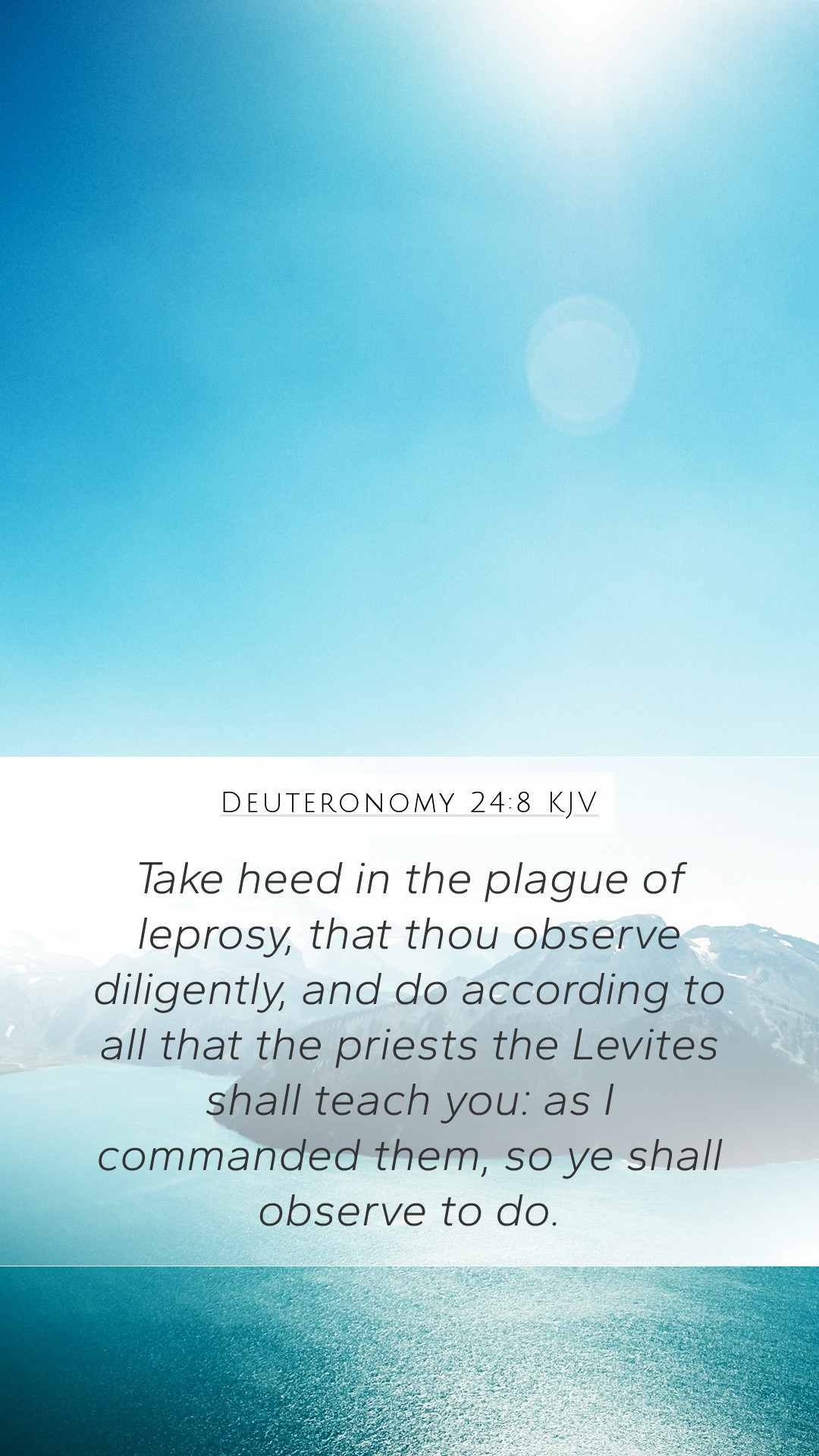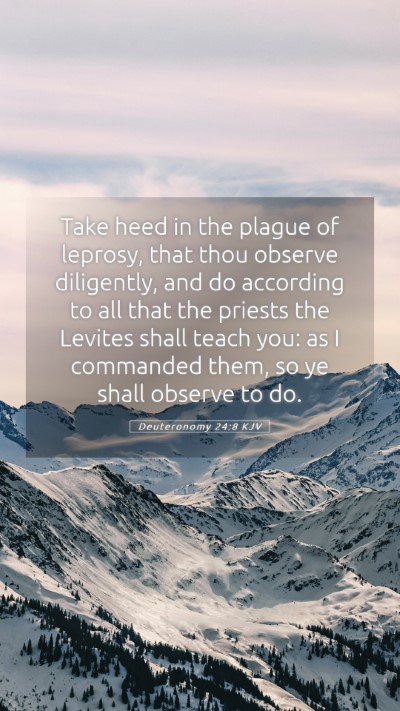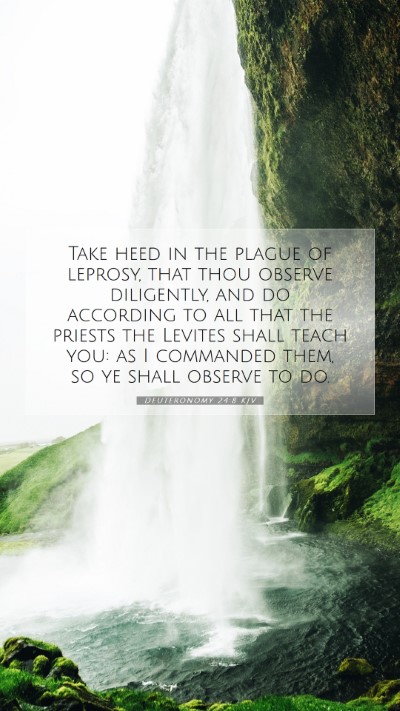Understanding Deuteronomy 24:8
Bible Verse: Deuteronomy 24:8
Verse Text: "Take heed in the plague of leprosy, that thou observe diligently, and do according to all that the priests the Levites shall teach you: as I commanded them, so ye shall observe to do."
Meaning and Significance
The verse from Deuteronomy 24:8 emphasizes the importance of adhering to the commands given by the priests regarding leprosy—a serious issue in ancient Israel. This instruction encapsulates broader themes of obedience, community health, and the divine authority vested in the Levitical priests.
Bible Verse Commentary
-
Matthew Henry's Commentary:
Henry stresses the necessity of maintaining purity in the community, indicating that leprosy was not just a physical ailment but a symbol of sin and impurity. He suggests that this verse underlines God's desire for His people to be holy, as He is holy. The priests, holding significant authority, were tasked with overseeing these matters, emphasizing their role in healing and guidance.
-
Albert Barnes' Notes:
Barnes highlights the practical implications of this verse, noting that society must heed the warnings and teachings of the priests. He stresses that failure to do so could lead to spiritual and physical decay within the community. He also connects this command with the larger theme of God's covenant faithfulness, where obedience leads to blessings.
-
Adam Clarke's Commentary:
Clarke expands upon the nature of leprosy, introducing it as a metaphor for sin, which if not addressed, could lead to larger societal implications. He notes that the instructions provided to the priests were divinely mandated, and thus, their teachings must be diligently observed. Clarke emphasizes the significance of adhering to spiritual teachings as vital to maintaining communal sanctity.
In-Depth Analysis
This verse can be analyzed within the larger context of the laws given to Moses and the Israelites about maintaining holiness in their community. The "plague of leprosy" serves as a reminder of the need for vigilance against spiritual corruption. The priests, as representatives of God, possessed the authority to interpret the law accurately and were entrusted to guide the people in these matters.
Historical Context
In ancient Israel, leprosy was a highly stigmatized condition that required isolation from the community. This regulation not only served public health interests but also illustrated the moral and spiritual imperatives of the community, reinforcing the idea that sin, like leprosy, could spread if left unchecked.
Application of the Verse
For modern readers, Deuteronomy 24:8 serves as a reminder of the importance of adhering to spiritual teachings and the community's role in fostering holiness. It encourages believers to actively engage with Scripture and to participate in communal teachings that guide their spiritual lives.
Bible Study Insights
When studying this verse, one might consider the implications of authority within the church and the importance of scripture in guiding personal and communal life. This verse invites reflection on how believers today respond to teachings from their spiritual leaders and maintain spiritual health in community.
Related Cross References
- Leviticus 13:2-46 - Instructions concerning leprosy
- Numbers 5:1-4 - Laws concerning the unclean and their isolation
- 2 Chronicles 26:20-21 - The story of King Uzziah, who was struck with leprosy for transgressing the temple's rules
Conclusion
In conclusion, Deuteronomy 24:8 not only addresses the specific issue of leprosy but also calls for a deeper understanding of obedience to God's commands through entrusted authorities. It is a verse that intersects health, spirituality, and community ethics, making it crucial for both historical understanding and contemporary application.
For those engaging in Bible study—whether in Bible study groups or through online Bible study—this verse serves as a vital component in understanding the intersection of faith and community wellness.


